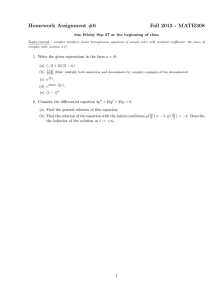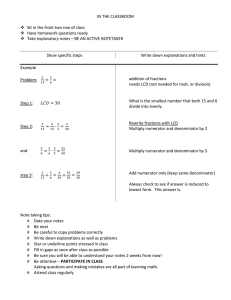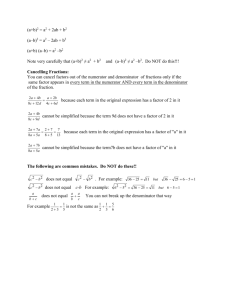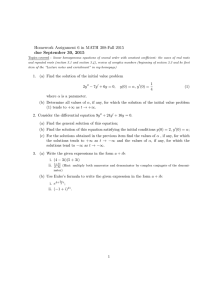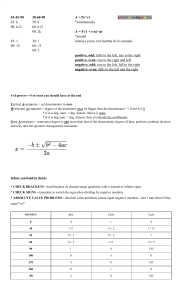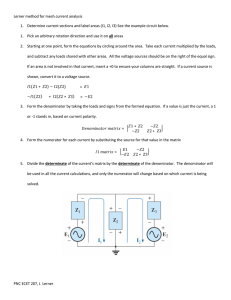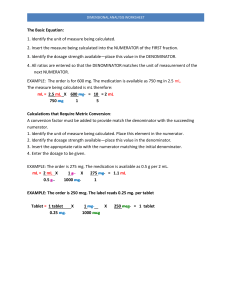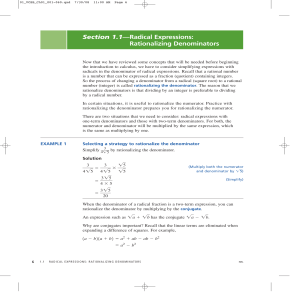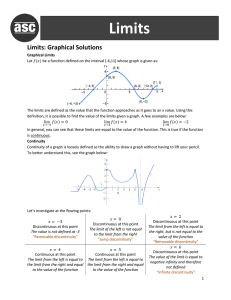How to integrate quotients where the numerator is the derivative
advertisement
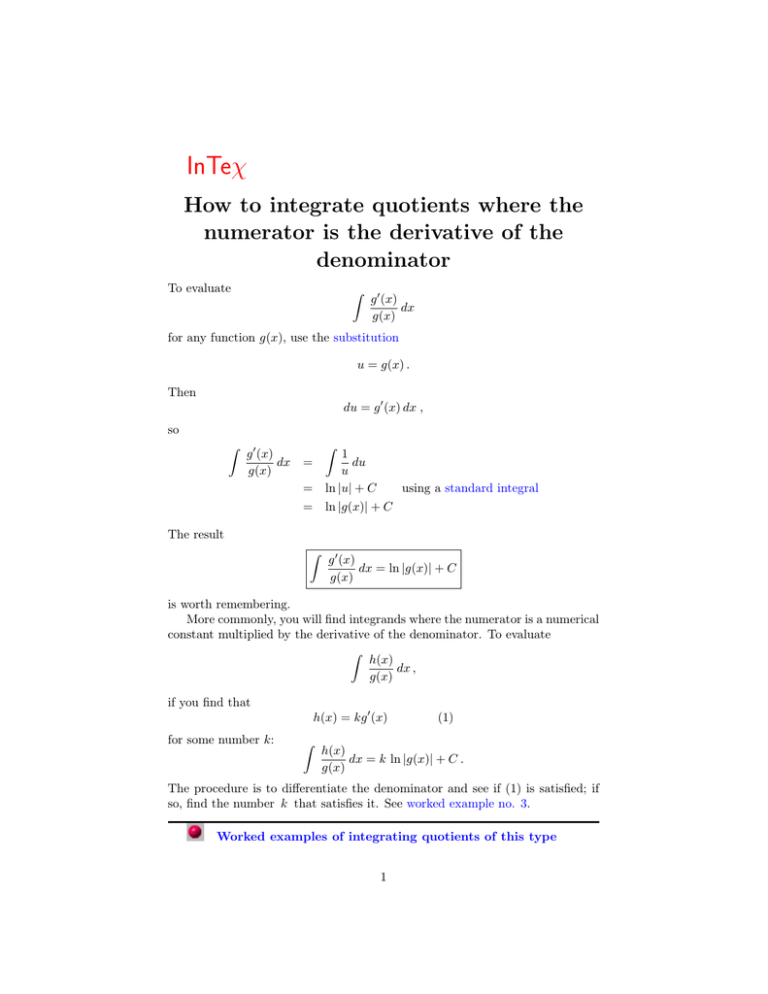
InTeχ How to integrate quotients where the numerator is the derivative of the denominator To evaluate Z g 0 (x) dx g(x) for any function g(x), use the substitution u = g(x) . Then du = g 0 (x) dx , so Z g 0 (x) dx = g(x) = = Z 1 du u ln |u| + C using a standard integral ln |g(x)| + C The result Z g 0 (x) dx = ln |g(x)| + C g(x) is worth remembering. More commonly, you will find integrands where the numerator is a numerical constant multiplied by the derivative of the denominator. To evaluate Z h(x) dx , g(x) if you find that h(x) = kg 0 (x) for some number k: Z (1) h(x) dx = k ln |g(x)| + C . g(x) The procedure is to differentiate the denominator and see if (1) is satisfied; if so, find the number k that satisfies it. See worked example no. 3. Worked examples of integrating quotients of this type 1 Go to List of types of integrand Click here to email the InTeχ site manager with any comments, queries or suggestions for improvements to this site, to notify any links that don’t work or any other technical faults, or to obtain further help with learning integration techniques. 2
